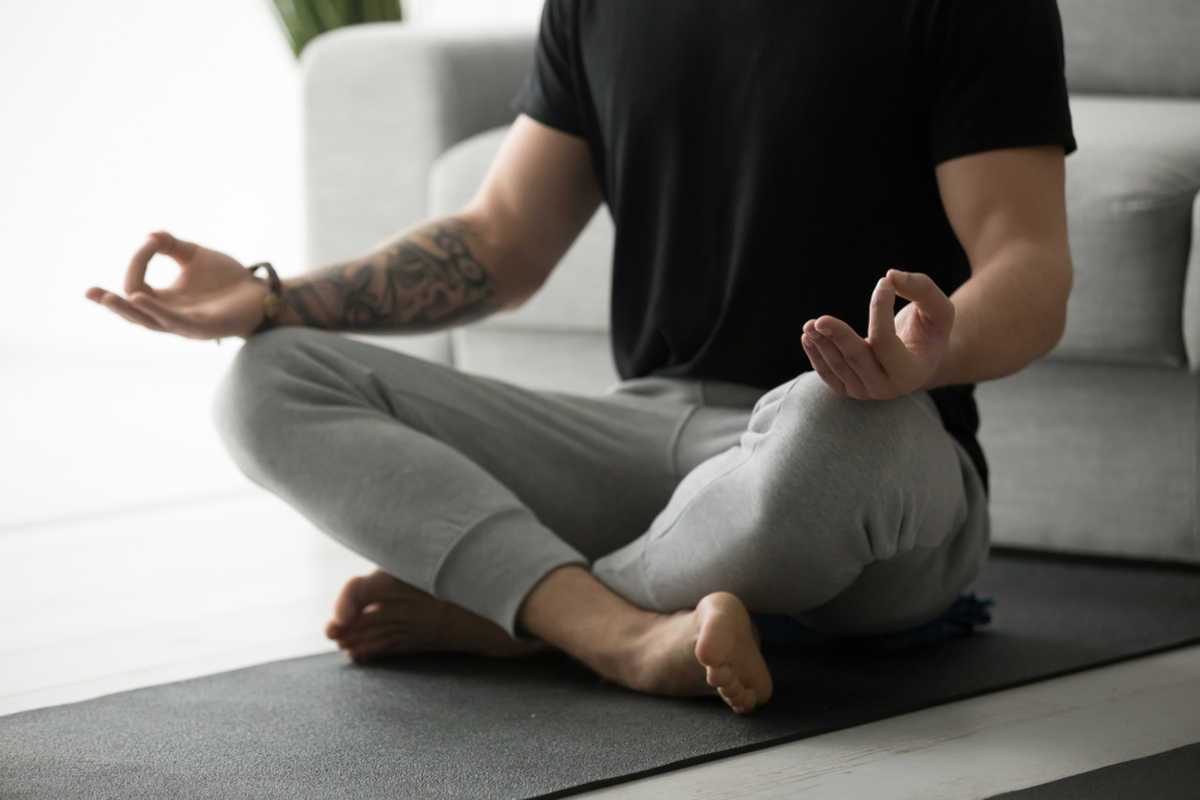Whether you're looking to improve your own health or have a loved one you would like to help, Men's Health Week is all about challenging men to get their health back on track.
Statistics show that men tend to be less healthy than women and are less likely to go to their GP or take up regular screening.
- Figures from the charity Men's Health Forum, which helps highlight the health concerns of men and boys in England and Wales, show that 42 per cent of men die prematurely (before the age of 75) compared to 26 per cent of women.
- Men are also more likely be killed by coronary heart disease (which they tend to develop 10-15 years earlier than women), are more likely to exceed the recommended units of alcohol a week, smoke and have a poor diet.
- Compared to women, men are also three times more likely to commit suicide (making it the biggest killer in men under 45). Middle-aged men are also twice as likely to have type 2 diabetes than women – and are rarely aware of the symptoms.
This is why it's vitally important that we all engage with Men's Health Week, which this year is themed around checks and challenges.
Checks and challenges
To help you feel more in control of your health - or to support your loved ones - the Men's Health Forum has produced a 20-page interactive booklet called 'Man MOT' which aims to get men more engaged with their health.1
Try these checks and challenges to get you started...
Check 1: prostate health
1 in 8 men will get prostate cancer according to figures from Prostate Cancer UK. It is the most common cancer in men but the earlier it is caught, the more treatable it is.
The challenge…
Check your risk with this 30-second test2 from Prostate Cancer UK and familiarise yourself with the common symptoms: needing to pee more frequently (particularly during the night); difficulty in starting to wee; straining to pee; a weak flow of urine or blood in your wee or semen.
You are also at an increased risk if you are over 50, are black, or if your brother or dad has had the condition.
Check 2: waist measurement
A waist measurement of 37-40 inches or over puts you are at 'high risk' of heart disease, according to the British Heart Foundation.3 It also significantly increases your risk of type 2 diabetes.4 This is because accumulating fat around your middle is linked to excess fat inside your organs, putting you at greater risk of high blood pressure, high blood fat levels, coronary heart disease and type 2 diabetes.
The challenge…
Measure your waist using a tape measure, which will give you a more accurate reading than the size of your jeans. If you are in a high-risk group, aim to drop a few inches by:
- Swapping high-fat or processed foods for more nutritious and filling high-fibre ones, like pulses, vegetables and fruit, as well as lean protein like steak or chicken breast.
- Limiting your alcohol intake to the recommended 14 units a week.
- Managing your stress levels (stress triggers cortisol, which can cause weight to accumulate around your middle).
- Getting at least seven hours sleep a night. Studies show people who don't sleep enough store more weight around their belly.5
As an added bonus, losing weight will also take pressure off your joints if you suffer with joint pain.

Having a simple goal, like eating an extra portion of vegetables every day, could help you reduce your waist measurement.
Check 3: blood pressure
In England, 31 per cent of men have high blood pressure (compared to 26 per cent of women). Left untreated, it significantly increases your risk of heart attack and stroke, but it rarely presents with symptoms, so the only way of knowing if yours is high is to take a test.6
A blood pressure reading is measured using two numbers: systolic (which measures the pressure in your arteries when your heart beats) and diastolic (which is the pressure between the beats). As a general guide, 90/60 up to 120/80 is ideal blood pressure. If it is inching towards 129/80, this suggests it is a little higher than it should be, and 140/90 signals it is probably already high.
The challenge…
Find tips for how to monitor yours on Blood Pressure UK7 then take the steps you need to get your blood pressure back on track by not smoking; eating a healthy balanced diet; reducing your salt intake (having too much disrupts the natural sodium balance in the body, which can increase high blood pressure); reducing your alcohol intake; maintaining a healthy weight; exercising regularly and keeping a lid on caffeine (drinking four cups of coffee a day or more can increase blood pressure for some).
A recent study even suggests just sitting in the sunshine can help lower blood pressure too.8
Check 4: mental health
Around one in eight men in England has a common mental health problem. This can include anxiety, depression, panic attacks and OCD.
The challenge…
If you are struggling with your mental health, communicate how you are feeling by whatever means you feel comfortable with, to a person or organisation you feel you can trust.
For example, if you don't want to talk face-to-face with someone you know, speak to an expert online at a reputable organisation like MIND. There are also a range of free online de-stressing tools and resources that can help, like those featured on Calm.9
Regular exercise is also a well-documented way to reduce tension, manage stress and lessen depression. Research shows men are also more likely to anaesthetise their feelings of distress using alcohol or drugs, so if you feel you need it, there is helpful advice and a range of support services on the Turning Point website.10
Professor of Health Studies, Damien Ridge from the University of Westminster, says that if there was just one piece of advice he would give to men to help improve their mental health, it would be to "reach out to others and build connections, even if this seems difficult. Together we are stronger. In isolation problems get magnified in our heads."

Finding a way to relax is an important way to look after your health, and can impact everything from your blood pressure to your weight.
What else can help?
The way traditional masculinity is constructed (for example, being told to 'man up') can make it harder for men to ask for (or admit they need) help, for fear of it being seen as a sign of weakness. That said, there are a number of things that may make men feel more comfortable doing so:
- Taking the issues to where men are more likely to be. As the Men's Health Forum point out, establishing more 'male-friendly environments' to highlight health concerns (like in the workplace, at rugby or football stadiums, or pubs) has been really successful. If there are any taking place in your office, or sports venues or pubs near you, try to take advantage of what's on offer.
- Using humour, not to trivialise a condition or problem, but to help raise awareness of it in a naturalistic way. For example, in their series 'Gone Fishing', comedians Bob Mortimer and Paul Whitehouse chat openly about the symptoms of their heart conditions and the surgery they have had, whilst making each other laugh – and whipping up some heart-friendly meals along the way.
- Accessing health information online – anonymously and confidentially – can be easier for many men. Since COVID many GP and/or physiotherapy appointments remain online or over the telephone, which might make it a more comfortable way for some men to connect with a GP or health provider.
- Writing stuff down. Whilst things are changing and many high-profile men are talking more openly about their physical or mental health struggles, some men can feel more comfortable writing down their problems rather talking about them face-to-face.
- Being as supportive as you can. We all want the best for men in our lives – sons, partners, brothers, dads, grandads, friends – so be alert to any sudden or unexplained changes in them, like weight loss, signs of pain or behavioural changes (including low mood, mood swings or trouble sleeping). Try to listen without judgement and take your cues from them – offering to go to the GP with them might make them far more likely to go.
- Opening the conversation. It might be blindingly obvious, but asking someone if they are feeling okay and/or that you have noticed they don't seem themselves can be all it takes for them to acknowledge they are not.
Of course, not all men are the same and what works for one might not for another, but the more we keep raising awareness and encouraging dialogue (online or otherwise), the better the health of the nation's men should get.







